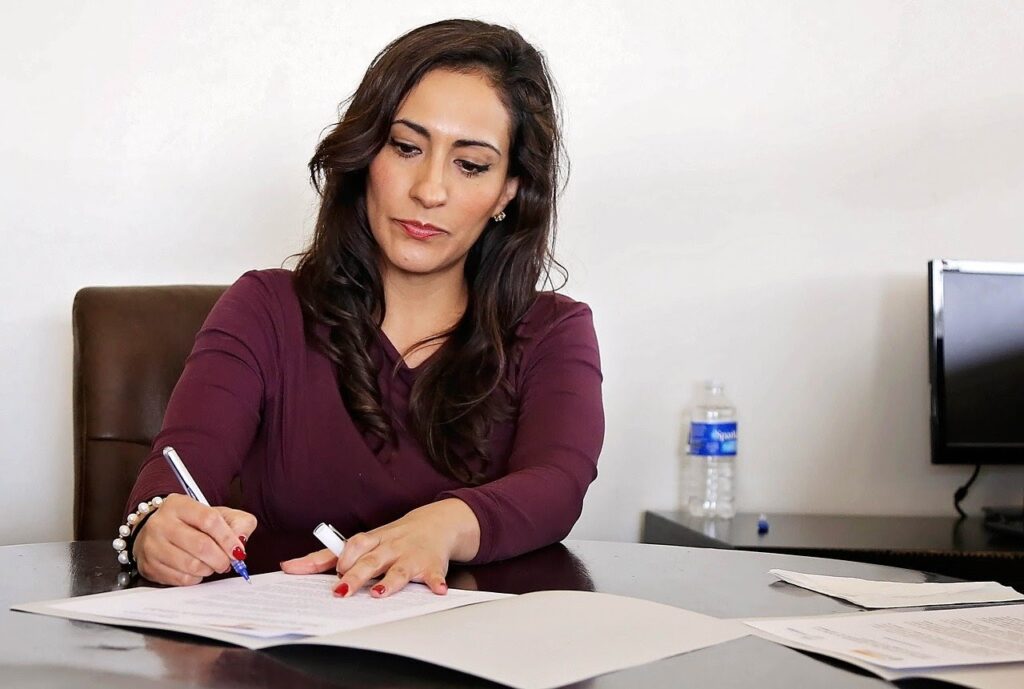
Leadership skills: what makes a good leader?
What are the personality traits of a good leader? What other leadership competencies do you have? In this post, we will explore what leadership skills are needed to be a good leader.
Categorisation of leadership skills
What makes a good leader? Although recognising and identifying whether someone is a good leader is not a problem for most people, it is not an easy question to answer.
Generally speaking, a leader should have all the skills, abilities and personal qualities needed to perform the various leadership roles. If a leader has the right leadership competencies, he or she is able to coordinate, manage and support people and groups effectively and efficiently.
The leadership skills needed to do this fall into four main categories:
- professional skills,
- interpersonal and communication leadership skills,
- conceptual leadership skills,
- and the personality traits and personal qualities of a good leader.
Below we take a detailed look at the four categories of leadership skills. Within each category, the most important leadership qualities are also discussed in detail.
Professional skills

In some ways, professional skills are the fly in the ointment of leadership skills. It includes professional competence and routine, i.e. theoretical and practical knowledge of a given field. Professional skills alone do not guarantee that someone will be a good leader, but without adequate professional skills this is hardly possible.
The right professional knowledge is essential to be a manager:
- be familiar with the work processes and activities under his/her control
- understand the context,
- be aware of the main problems that may arise in day-to-day operations and how to deal with them,
- be able to assess the consequences of their own decisions on the workflow.
Generally speaking, the closer a manager is to the operational processes, to the level of direct work organisation, the more professional skills dominate. For middle managers, professional and other management skills are equally important. And for senior managers, professional skills take a back seat to other management skills.
Interpersonal and communication leadership skills

A good leader has to be good with people, which is a very big part of it. For example, you need to be able to guide and motivate them, and have the empathy to recognise when someone needs help. Communication skills also come into this category, as a pep talk or a well-delivered negotiation is also part of a good leader's arsenal of weapons to influence others.
Let's see what qualities and leadership skills fall into this group.
Setting a personal example
The position of a good manager is contradictory because he is above the employees in terms of hierarchy. However, ideally, subordinates still feel that the boss is "one of us". Personal example is a key leadership skill in this respect. For example, it is quite different if the boss expects everyone to be in by 9am if he is in at that time.
Personal example can also be shown when the leader gets involved in group work, if the situation requires it. Or, if necessary, to stand in for a subordinate.
Empathy, willingness to compromise, ability to motivate others
In the absence of empathy, it is just as difficult to map the intentions and preferences of competitors or clients as it is to support and motivate subordinates. An empathetic leader is also able to uncover and understand the underlying reason behind the behaviour and words of an employee who may have a negative attitude or be demotivated. With this knowledge, he or she can offer a real solution to the problem and provide real support to the employee.
An empathic vision also helps to make compromises. The ability to compromise is essential for conflict management and for building a collaborative workplace culture. This does not, of course, mean that the manager is completely without the tools of authority-based pressure. One of the hallmarks of a good leader is the ability to find a balance between these two poles.
Communication skills
Communication skills should not be missing from the toolbox of a good manager. Good communication skills are essential for the use of many of the management skills already mentioned or to be mentioned below.
Four main areas of communication skills:
- presentation skills,
- attentiveness,
- negotiating skills,
- literacy.
A competent leader must have good communication skills in all four areas.
Conceptual leadership skills

The competencies and skills discussed so far are also necessary to be a good leader, but conceptual leadership skills are competencies directly related to the leadership role. A leader must be proactive in thinking ahead, having some kind of vision, perspective on the company he or she is managing. At the same time, planning and managing operational processes and dealing with unforeseen situations are also part of a manager's responsibilities.
Accordingly, conceptual leadership skills are skills related to the following areas:
- target setting,
- conceptualisation,
- strategic decision-making
- project management,
- work and process organisation.
Here are some specific leadership skills that can be included in this group.
Strategic approach
To use an example, the way the whole film exists in the mind of the filmmaker before the first frame has been shot is exactly how a good director sees the whole picture. The film actor who knows only the scene in question, and only his own lines, may not understand exactly why he has to say the lines he has to say. The director, on the other hand, sees the scene as it is placed in the film.
On the one hand, a strategic approach enables a good manager to put together the whole picture from the mosaic of information in the socio-economic environment surrounding the company. And then, on this basis, to develop the company's strategy. On the other hand, it can set the main directions and then break them down into specific tasks and responsibilities within the company.
The ability to foresee
A strategic approach and the setting of appropriate objectives are unthinkable without a manager's ability to anticipate key trends, events and processes. A good leader is like a chess player: when planning his own moves, he anticipates the possible moves of his opponent (of course, in the case of a company, it is not only the possible moves of the opponent - the competitor - but also the future development of legislation, market processes, customer needs and preferences and thousands of other factors.)
Decision-making
Perhaps the most defining characteristic of leadership is decision-making. A good leader is able to reflect and make decisions quickly under pressure. Here too, stress tolerance is an essential prerequisite, the lack of which is difficult to reconcile with effective decision-making.
A competent manager can also identify when it is appropriate to involve others in the decision and which decisions are best left to others. It is worth noting here that a special mention should be made of the emerging and fashionable topic of agile leadership, the ability to involve and support team decisions.
Problem-solving ability
Among the qualities of a good leader, problem solving is key. Any problem that subordinates or lower-level managers have failed to solve will, by the nature of the organisational hierarchy, fall on them.
Good problem-solving skills presuppose that the leader has a positive mindset, i.e. a solution-oriented rather than problem-oriented approach. It also requires an excellent ability to cope with stress, as it is possible to solve a difficult situation effectively with a cool head.
Ability to delegate tasks
The list of managerial competences cannot be complete without delegation. It is a common mistake for a manager to be unable to delegate some of the tasks to his subordinates or colleagues. Inevitably, one gets lost in the management of many micro-processes.
The ability to delegate means that the manager is able to prioritise tasks and delegate those that the subordinates are able to do. The result: effective work organisation and functioning at group level.
Planning and organisation skills, time management
If you are a good planner and organiser, you can plan and schedule the goals to be achieved and the tasks needed to achieve them. This includes resource management, project management.
In addition to the aforementioned foresight, a good sense of time and the ability to manage time are essential for proper planning. This also includes the manager's own time management and the deadlines for organisational work.
Personal qualities, competences

The personal qualities listed here do not in themselves make someone a competent leader. However, it is difficult to imagine a leader who does not have some or all of the following qualities.
The personal qualities listed here are easy to interpret in relation to the skills mentioned so far, and are relatively straightforward in the context of leadership skills. They are therefore presented here as a list without explanation.
The personality traits of a good leader:
- Excellent self-awareness
- Leadership talent (i.e. when someone is a "born leader")
- Charisma, determination
- Perseverance, determination
- Good people skills
- Positive mindset
- Flexibility
- Creativity
- Stress tolerance
- Strong motivation, perseverance
- Sufficient work and life experience
- Demand for lifelong learning
- Open mindset
- Humility
Have a question? Contact us!
Do you want to explore what leadership skills are your strengths and where you could develop as a leader? Do you have other questions about project management? Contact us for a free consultation!

 Designabc
Designabc